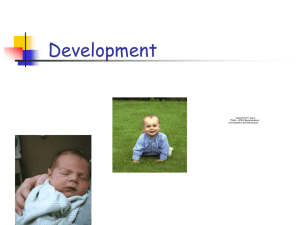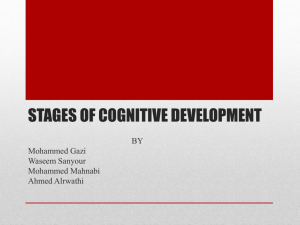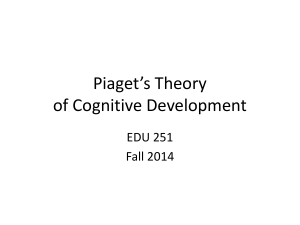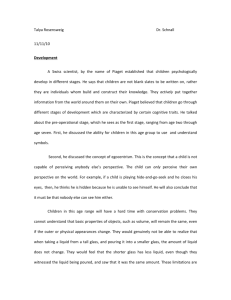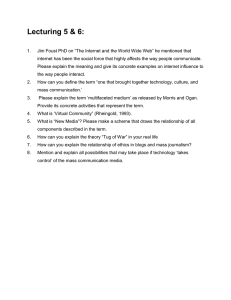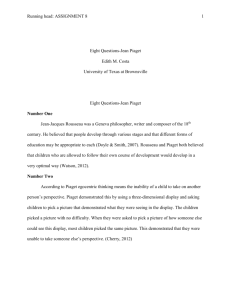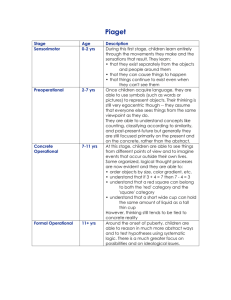School Aged Workshee..
advertisement
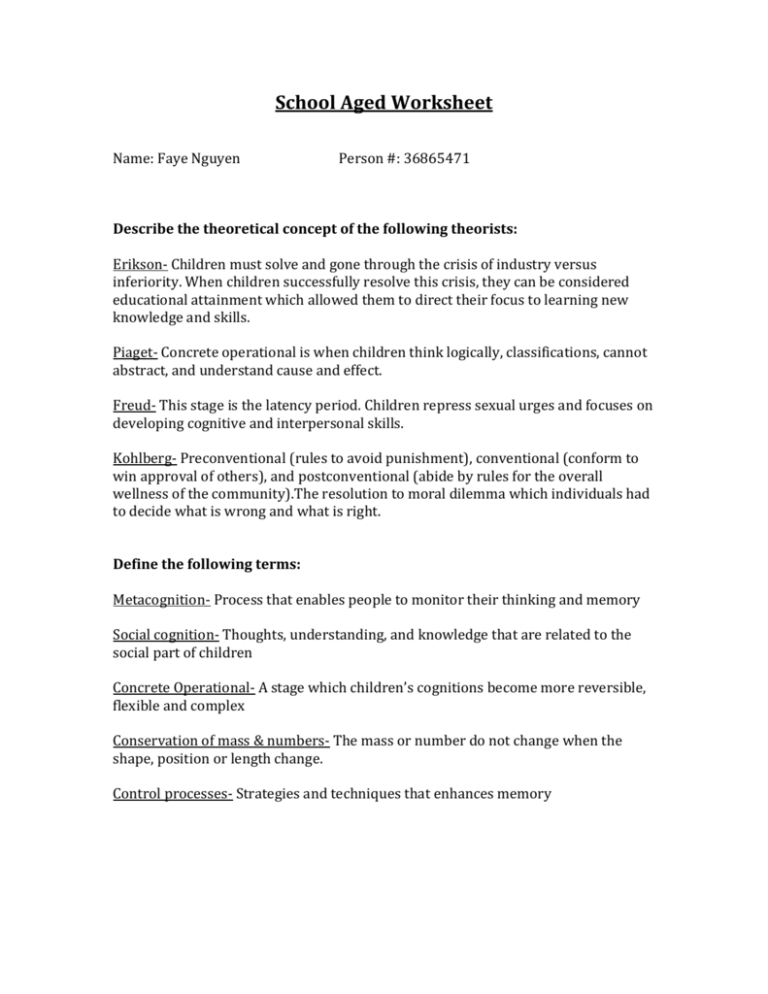
School Aged Worksheet Name: Faye Nguyen Person #: 36865471 Describe the theoretical concept of the following theorists: Erikson- Children must solve and gone through the crisis of industry versus inferiority. When children successfully resolve this crisis, they can be considered educational attainment which allowed them to direct their focus to learning new knowledge and skills. Piaget- Concrete operational is when children think logically, classifications, cannot abstract, and understand cause and effect. Freud- This stage is the latency period. Children repress sexual urges and focuses on developing cognitive and interpersonal skills. Kohlberg- Preconventional (rules to avoid punishment), conventional (conform to win approval of others), and postconventional (abide by rules for the overall wellness of the community).The resolution to moral dilemma which individuals had to decide what is wrong and what is right. Define the following terms: Metacognition- Process that enables people to monitor their thinking and memory Social cognition- Thoughts, understanding, and knowledge that are related to the social part of children Concrete Operational- A stage which children’s cognitions become more reversible, flexible and complex Conservation of mass & numbers- The mass or number do not change when the shape, position or length change. Control processes- Strategies and techniques that enhances memory According to Piaget, what were some ways he believed a child would become successful at cognitive development? - Piaget would believe that the child has reached the concrete operational stage when the child is able to conserve mass and number. Additionally, the child is able to thinking reversely and his thinking is not limited to certain point. Fill in the blank: Sociocentrism is when a child begins to compare themselves with others. At the age of 8, a child’s brain is 90-95% of its adult brain. Growth spurts for girls occur at age 9 and for boys at age 11. 16% of school-aged children in the U.S are considered obese. Social inferences, social responsibility and social regulation all contribute to a child’s social cognition.
